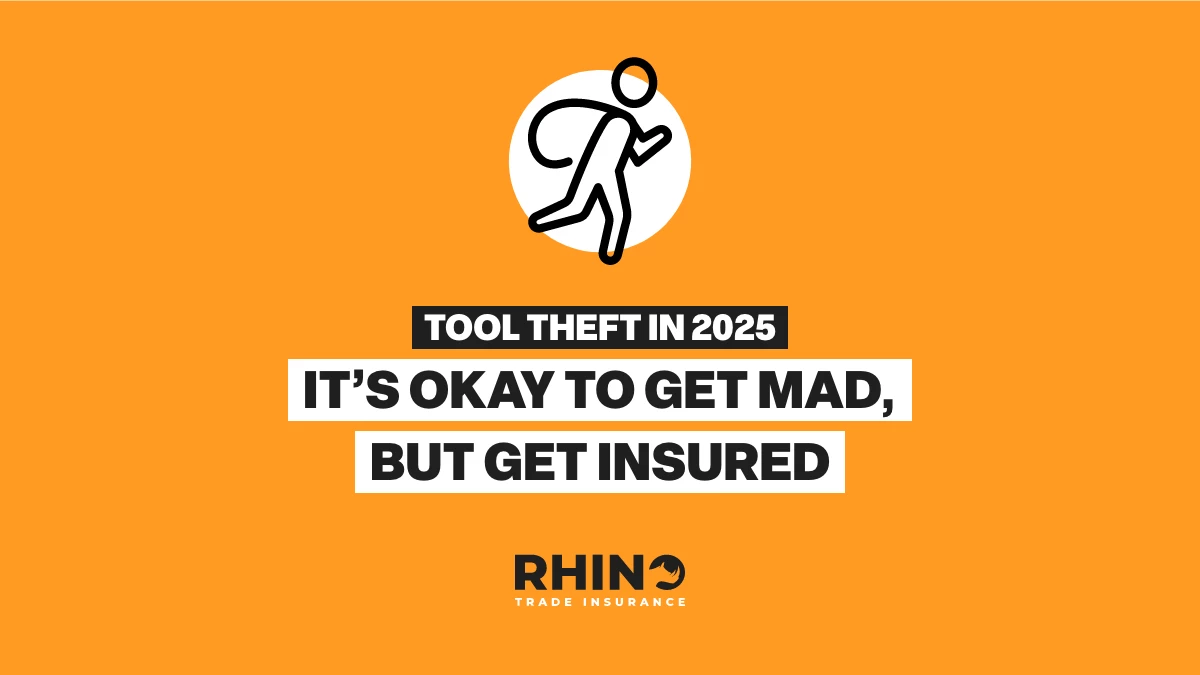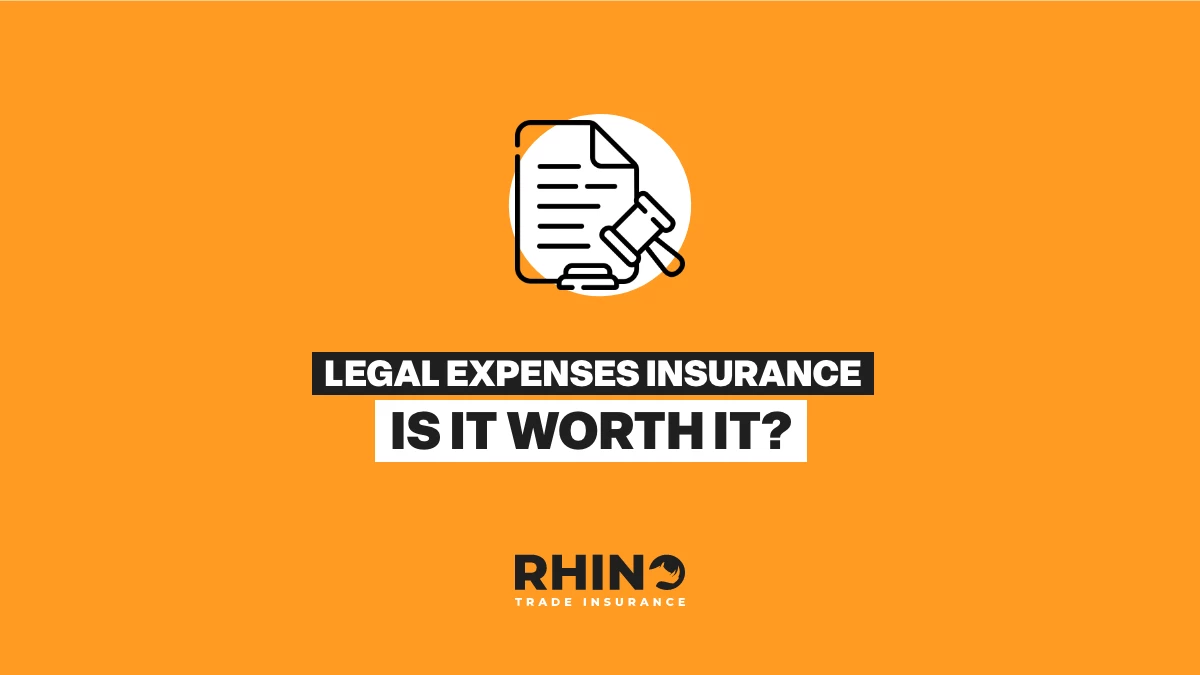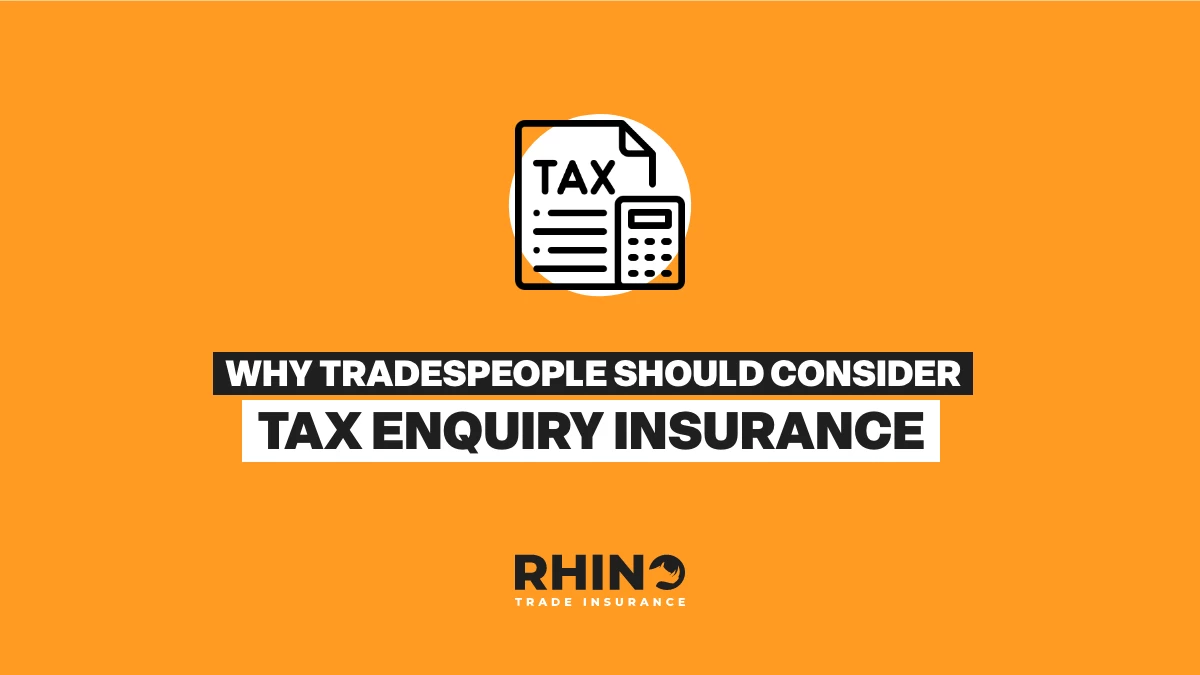Being a tradesperson in the UK comes with a variety of challenges. Sorting your own tax is one of them. Today we’ll look at the self-employed tax code and what it means for your trade business.
As a self-employed individual, you are responsible for managing your finances throughout the year and ensuring compliance with the tax regulations set by His Majesty's Revenue and Customs (HMRC). Let's explore everything you need to know so that you don't get yourself into hot water with the authorities.
Understanding Your Tax Status:
Before diving into tax codes, you should determine your tax status. As a tradesperson, you are likely self-employed, meaning you work for yourself and are responsible for managing your own taxes. However, it's essential to differentiate between being self-employed and employed.
If you are self-employed, you need to register with HMRC for self-assessment. This involves providing details about your income, expenses, and other relevant financial information. Failure to register and submit accurate tax returns can result in penalties.
Registering for Self-Assessment:
Registering for self-assessment is a fundamental step in ensuring compliance with the self-employed tax code. You must register with HMRC by 5th October in the second tax year of your self-employment. This process can be done online, and you'll receive a Unique Taxpayer Reference (UTR) once registered.
Your UTR is a unique identifier that you'll use when filing your tax returns and corresponding with HMRC. Keep this number safe, as you'll need it to log into your tax account and manage your tax.
Keeping Accurate Records:
Maintaining records of your income and expenses is crucial for accurate tax reporting. As a tradesperson, you likely have a variety of business-related expenses, such as tools, equipment, and travel costs. Keep receipts and invoices organised to substantiate your claims during the tax filing process.
The use of accounting software can significantly streamline this process, helping you track income, expenses, and overall profitability. Cloud-based solutions like QuickBooks, Xero, or SAGE accounting allow you to access your business information anytime, anywhere, and facilitate seamless collaboration with your accountant or bookkeeper.
Understanding Tax Allowances:
The UK tax system provides certain allowances and deductions that can help reduce the tax you pay. Familiarising yourself with these provisions is essential for optimising your tax position.
- Personal Allowance: The standard Personal Allowance is the amount you can earn tax-free in a given tax year. It's essential to be aware of any changes to this allowance, as it may vary annually.
- Expenses: As a tradesperson, you can deduct certain expenses related to your business when calculating your taxable profits. This includes costs such as tools, work clothing, vehicle expenses, and business-related travel. Keep thorough records and ensure that your claims adhere to HMRC guidelines.
- Capital Allowances: If you invest in tools or equipment for your trade, you may be eligible for capital allowances. This allows you to deduct the cost of these assets from your profits before calculating your tax liability.
National Insurance Contributions (NICs):
Self-employed individuals are required to pay National Insurance Contributions, which contribute to entitlements like the State Pension and the NHS. The NICs system for the self-employed comprises two classes: Class 2 and Class 4.
- Class 2 NICs: These contributions are a flat weekly rate and are payable if your profits exceed a certain threshold. However, you may be eligible for Small Profits Threshold, exempting you from Class 2 NICs.
- Class 4 NICs: This is a percentage of your profits above a certain threshold. The rates vary, so it's crucial to stay informed about the current thresholds and percentages to accurately calculate your NICs liability.
Payment Deadlines:
Meeting tax deadlines is important to avoid penalties and interest charges. The key dates to remember are:
- 31st January: Deadline for filing your online tax return.
- 31st July: Second payment on account for the current tax year (if applicable).
- 5th October: Deadline for registering for self-assessment.
- 31st October: Deadline for filing a paper tax return (if not using the online system).
Utilise HMRC's online services to set up reminders and ensure timely submissions. Consider seeking professional advice to navigate tax deadlines and payments.
Making Payments:
Understanding how to make tax payments is important so that you avoid penalties and maintain good standing with HMRC. There are several payment options available:
- Direct Debit: Create a direct debit to ensure timely payments. This can be arranged through your online HMRC account.
- Bank Transfer: You can make payments directly from your bank using the details provided by HMRC.
- Credit/Debit Card: HMRC accepts payments via credit or debit card, but be aware that there may be associated fees.
Whichever method you use, make sure to allow sufficient time for the payment to reach HMRC by the deadline.
Tax Planning and Professional Advice:
Regularly review your financial situation with your accountant, especially during periods of growth or significant changes in your trade business. This proactive approach can help you anticipate tax liabilities, implement effective tax-saving strategies, and avoid unpleasant surprises.
Record Retention and HMRC Audits:
HMRC may conduct audits to ensure compliance with tax regulations. Keeping records for at least six years is a legal requirement, as HMRC can investigate your tax affairs within this timeframe. Maintain organised and easily accessible records to simplify the audit process, should it occur.
Staying Informed and Adapting to Changes:
The UK tax landscape is subject to change, and staying informed about updates and revisions to the self-employed tax code is vital. HMRC regularly issues guidance and updates, and subscribing to their newsletters or following official channels will help you stay abreast of any changes that may impact your tax obligations.
Additionally, consider joining professional associations or networks within your trade. These forums often provide valuable insights and knowledge about navigating the tax landscape specific to your industry.
Trade Business Protection From Rhino Trade Insurance
Navigating the self-employed tax code as a tradesperson in the UK may seem daunting, but with the right knowledge and proactive approach, you can manage your finances effectively while ensuring compliance with HMRC regulations.
With all that said, you also need to stay on top of your trade insurance, and thankfully, Rhino Trade Insurance offers amazing cover options specific to your line of work, which are easy to take out and affordable. Get all the information you need and a quote by calling us or taking a look at our website here.




